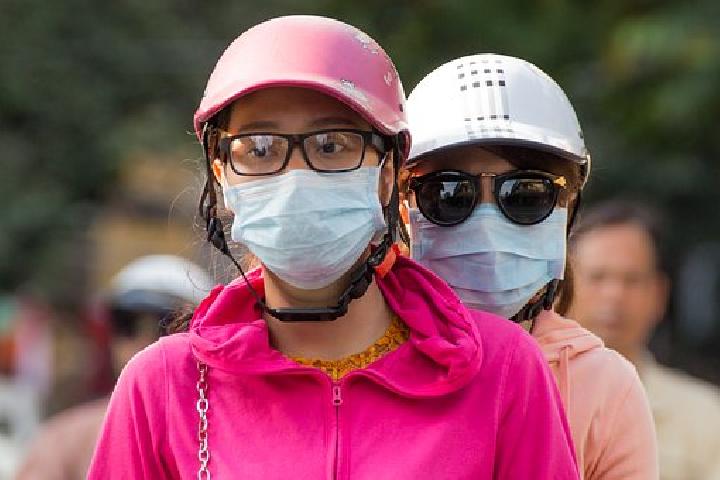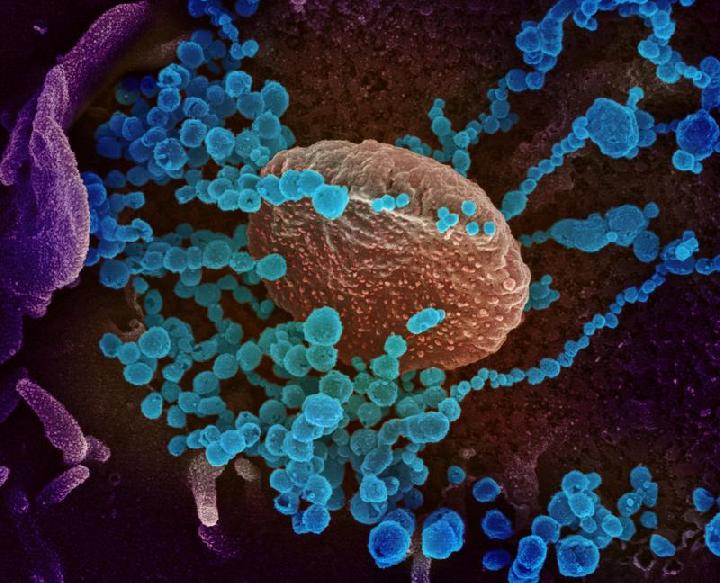Minister Budi Gunadi: Health Intervention is to Protect People from Getting Sick
Translator
TEMPO
Editor
Laila Afifa
Sabtu, 22 Juli 2023 19:29 WIB

TEMPO.CO, Jakarta - The Health Law revisions have always stirred up controversies. After its adoption in 1992, the law was previously revised in 2009. The revision that time triggered uproar because legislators and the health ministry removed the tobacco clause. Police closed the case filed by activists against the House of Representatives (DPR) for constitutional violation. The recently passed revisions in the omnibus law also prompted protests from many sides.
Members of the Indonesian Doctors Association (IDI) had launched protests ahead of the ratification of the law arguing that the discussions of the bill were not inclusive and the content unfavorable to health care workers. However, as with the previous omnibus law, the protests did not stop the DPR from passing the bill on July 11.
The Justice and Prosperity Party (PKS) and Democrat Party rejected the ratification. Meanwhile, legal experts behind IDI are also geared up to file a petition for a review at the Constitutional Court. They say that the new Health Law contains numerous problematic articles and contradicts other laws and even the 1945 Constitution.
Health Minister Budi Gunadi Sadikin appears calm and collected amid the outcry. He welcomes anyone who wishes to legally challenge the law. “As such, it becomes open and debatable,” he explained the aim and rationale behind the said articles to Tempo.
During two separate interviews on June 23 and July 13, he aptly explained the latest health issues. The former state-owned enterprises minister said that the government had identified 10 animals that posed the highest risks of spreading viruses to humans and causing diseases like Covid-19. “Starting now, we are preparing detection kits, vaccines, and medicines,” he said.
Why did the government need to revise the Health Law?
To support the six (health) transformation pillars. First, the role of medicare. In simple language, we are shifting from treatment to prevention. Second, to make access to health care easier. Third, to make the health industry that used to rely heavily on foreign countries more independent and inward-looking. The health equipment procurement budget has now shifted towards local spending. We used to have only one vaccine production facility but now we have three. We will also form emergency medical teams, like the military reserve of Defense Minister Prabowo Subianto. Every (health) disaster needs different healthcare professionals. When a volcano erupts, we need those who can treat shortness of breath, ear-nose-throat, and internal health problems. In case of earthquakes, orthopedics, and surgeons. And internists and infectious disease specialists for floods. Fifth, to make inefficient funding transparent and effective.
What was the catalyst for the revision?
When we were suddenly hit by Covid-19, PCR (polymerase chain reaction) tests were difficult because we were focusing on clinical (treatments). We should have focused on public health.
Is this related to the mandatory budget allocation?
Give me an example of anywhere in the world of a correlation between spending and output? There’s none. In the United States with US$10,000 per capita, the outcome (life expectancy) is 80 years. The outcome of Cuba with US$2,000 is also 80 years. Must we follow America’s model? It’s useless if the program is not clear. Compare it with Japan with the ratio of US$4,800 per capita and life expectancy of 84 years. Korea is even better with US$3,500 and 84 years. Or Singapore with US$2,800 and 84 years. Which one would you choose?
There was rejection from the PKS and Democrat at the DPR…
Their concern is only one: mandatory spending. It’s okay. Even Tempo’s harsh criticism against the health minister was accepted. We, ITB (Bandung Institute of Technology) graduates are used to discourses and debates.
What do you anticipate if the Health Law is challenged at the Constitutional Court?
No anticipation. We’ll see who’s right and who’s not. I respect differences. I think (lawsuit) is the correct route. Let the public decide. I’m happy because it will become open and debatable. Now people are using emotions (not logic).
What were the considerations behind the removal of the pandemic status on June 21?
I informed the president that we should consult with the WHO (World Health Organization) about it since it was a global pandemic. WHO Director-General Tedros Adhanom Ghebreyesus said there were several criteria for the transition of the pandemic becoming endemic. But, most philosophically, there is government intervention in a pandemic. When it becomes endemic, the public can self-regulate. Dengue fever is endemic and the government doesn’t intervene. There are four conditions for a pandemic to become endemic. First, adequate health promotion so that the public is aware of the characteristics of the disease and how to treat it. Second, tests are available and surveillance is still good. Third, people know when they are infected and to get treatment. Fourth, vaccines are available.
<!--more-->
What has changed in the healthcare system after the pandemic?
The national healthcare systems of almost all countries were unprepared when the pandemic hit. People focused only on going to hospitals or healing the sick. That strategy was wrong. That strategy would not (make us) strong to face the pandemic. We let people sick and then treated them in the hospital. Too late, too expensive. People suffered. Health intervention should protect people from falling sick. To keep people healthy. That concept is totally different from the medical concept taught in medical schools, which is to heal the sick.
The Health Law contains an article that requires building owners to provide smoking rooms. Why should something hazardous be obligated?
I don’t remember seeing that article. What I know is the article requires companies to pay for (their employees’) medical bills. The formal text hasn’t been circulated. It is still being processed at the state secretariat.
Has it been changed?
As an outsider, I see that management in health care is dominated by medical people. It should be filled with public health experts because a good health intervention program is to protect people from getting sick. As soon as they come under doctors’ care, the health concept shifts to treatment.
Are you going in that direction?
I’m shifting back. We are leaning towards promotive and preventive primary care. People said they had known that. But the health ministry’s budget didn’t reflect that. We should have pushed promotive and preventive care. For the first time, next year’s budget for puskesmas (health community centers) will exceed Rp10 trillion from Rp4 trillion to Rp5 trillion at most before. And Rp17 trillion for hospitals. Second, our efforts used to be about healing. For instance, what are the tools or drugs for cancer? It should have been efforts to revitalize posyandu (integrated health services post). That’s why our program is to revitalize puskesmas and posyandu, how to change posyandu so that they not only serve pregnant mothers and babies but also maintain the health of the entire community. To promote healthy life and well-being for all people of all ages.
Are there any other initiatives to anticipate the next pandemic?
One Health. For the health of humans and animals. It’s just that a lot of people don’t execute this concept correctly. Now Indonesia wants to lead ASEAN (Association of Southeast Asian Nations). The One Health concept has been implemented in ASEAN. We asked for funds through the pandemic fund so that we can prepare ourselves early to face all the pathogens that may jump over. We can already anticipate them from now.
Read the Full Interview in Tempo English Magazine
Click here to get the latest news updates from Tempo on Google News




















